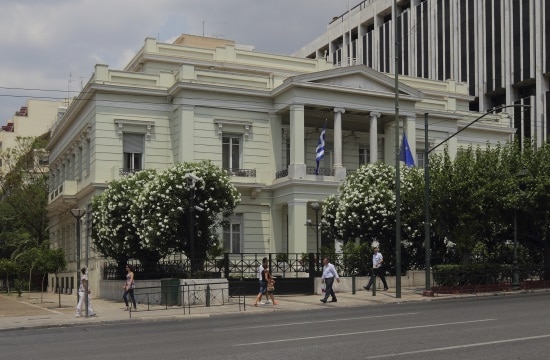As Israel intensifies its blockade of Gaza and the likelihood of a prolonged conflict looms, Greece braces itself for a new wave of illegal migrants. The country's top migration official has cautioned that the recent surge in violence will likely compound an increase in migrants, with UN data indicating that Palestinians have been at the forefront of this surge.
Greek Migration Minister Dimitris Keridis has expressed his concerns, pointing out that even before the outbreak of hostilities between Hamas and Israel, Greece had already been contending with the largest upsurge in illegal migrant arrivals in recent years. He emphasized the situation's complexity, stating, "As if the numerous flashpoints in northern Africa and Syria were not already pushing thousands of migrants and refugees toward Europe, now this."
Keridis warned that the escalating violence in the Middle East could further exacerbate migration pressures on Greece and the European Union as a whole. This is particularly concerning if Iran becomes entangled in the crisis and tensions in Lebanon, Egypt, and Libya.
Like Italy and Spain, Greece has experienced a notable increase in migrant arrivals. In the current year, the number of illegal entries has already more than doubled the 18,780 recorded for the entirety of 2022. United Nations data reveals that Palestinians are the predominant group among these migrants, seeking illegal entry routes to Europe through Turkey, Egypt, or Libya. The departure of Palestinians from their homeland has largely been triggered by a surge in violence in the West Bank over the past few months.
These statistics also indicate that Palestinians account for 22 per cent of the illegal entries into Greece, followed by Afghans, Somalis, and Syrians.
Keridis, speaking to a local broadcaster, emphasized that Greece remains vigilant but did not specify the additional measures his government may be considering to safeguard its borders further.
He warned that migration pressures will increase significantly if the growing violence following Hamas' attack in Gaza leads to a protracted conflict, as many predict. Keridis stressed that even if Israel succeeds in regaining control of Gaza, securing its borders against Hamas intruders, and eliminating the terrorist organization entirely, migration flows are unlikely to subside. He underscored the need for a military solution to be complemented by a comprehensive resolution of the Palestinian crisis because, without a settlement framework, such crises will continue to erupt.
This week, Greece, along with Cyprus, Italy, Malta, and Spain, joined forces in demanding increased funding from the European Union to address the escalating issue of illegal migration. These five countries also urged Brussels to consider sanctions against states that refuse to accept the return of illegal migrants. During a meeting in Granada, Spain, on October 6, EU leaders grappled with deep divisions in their efforts to formulate a unified stance on this matter.

